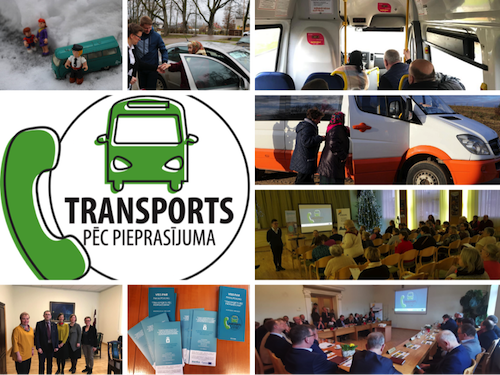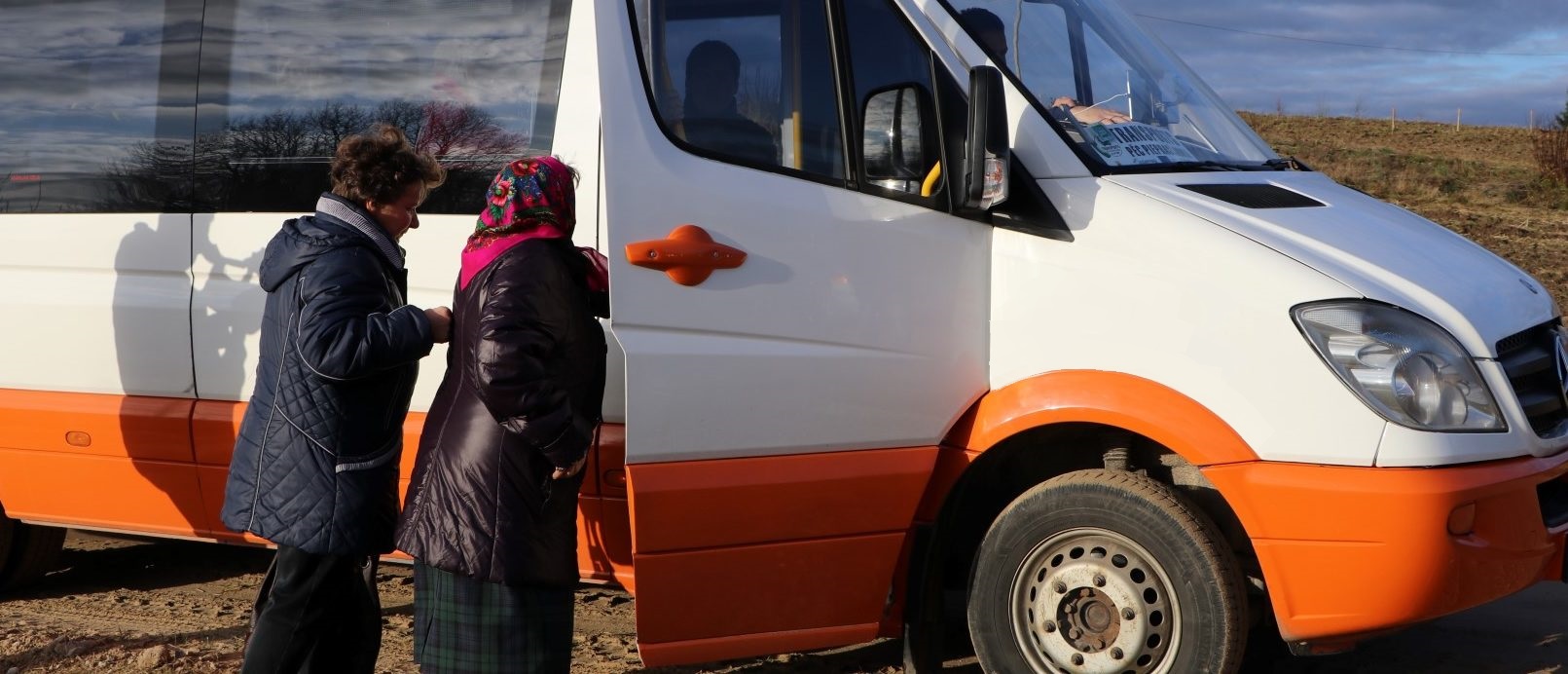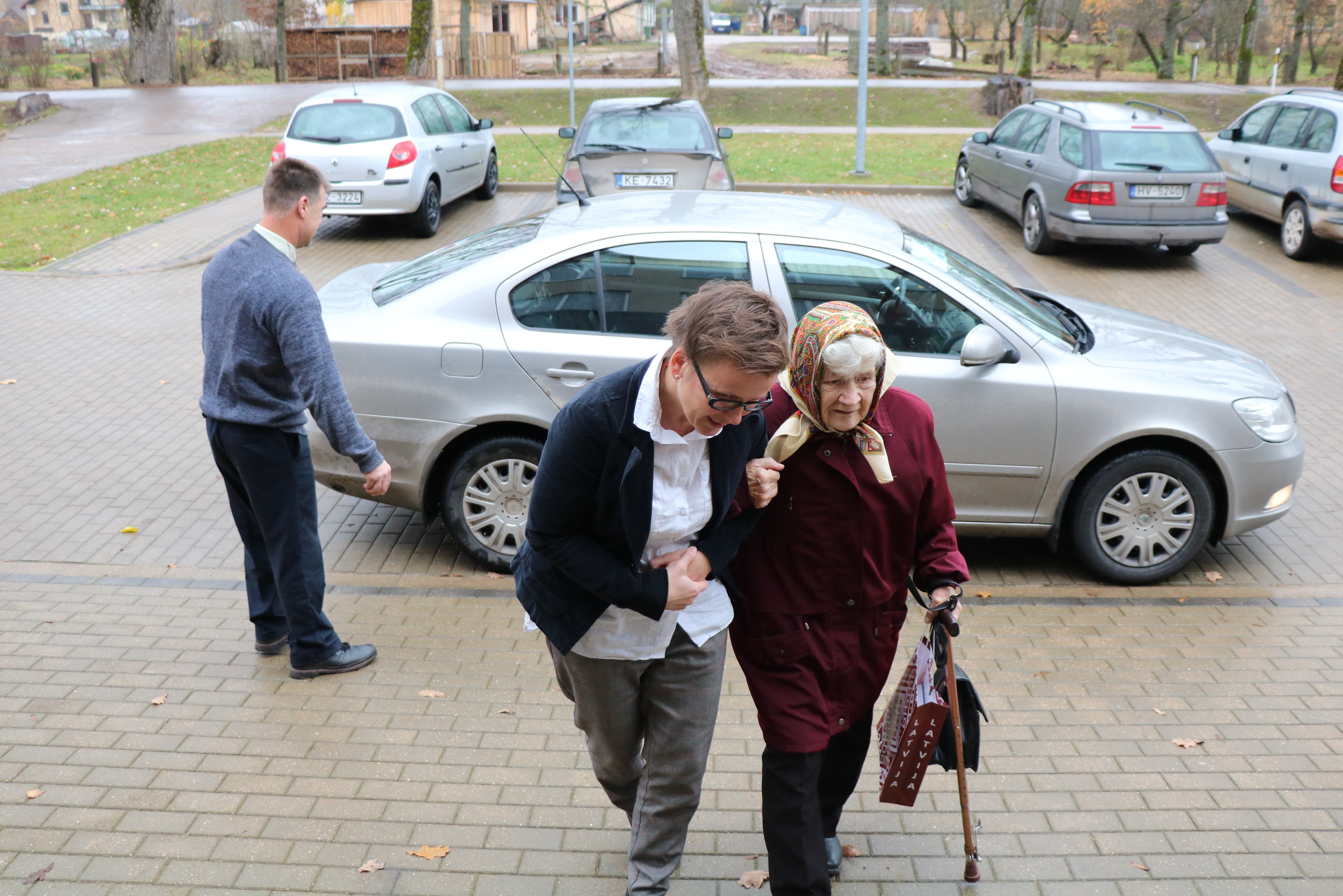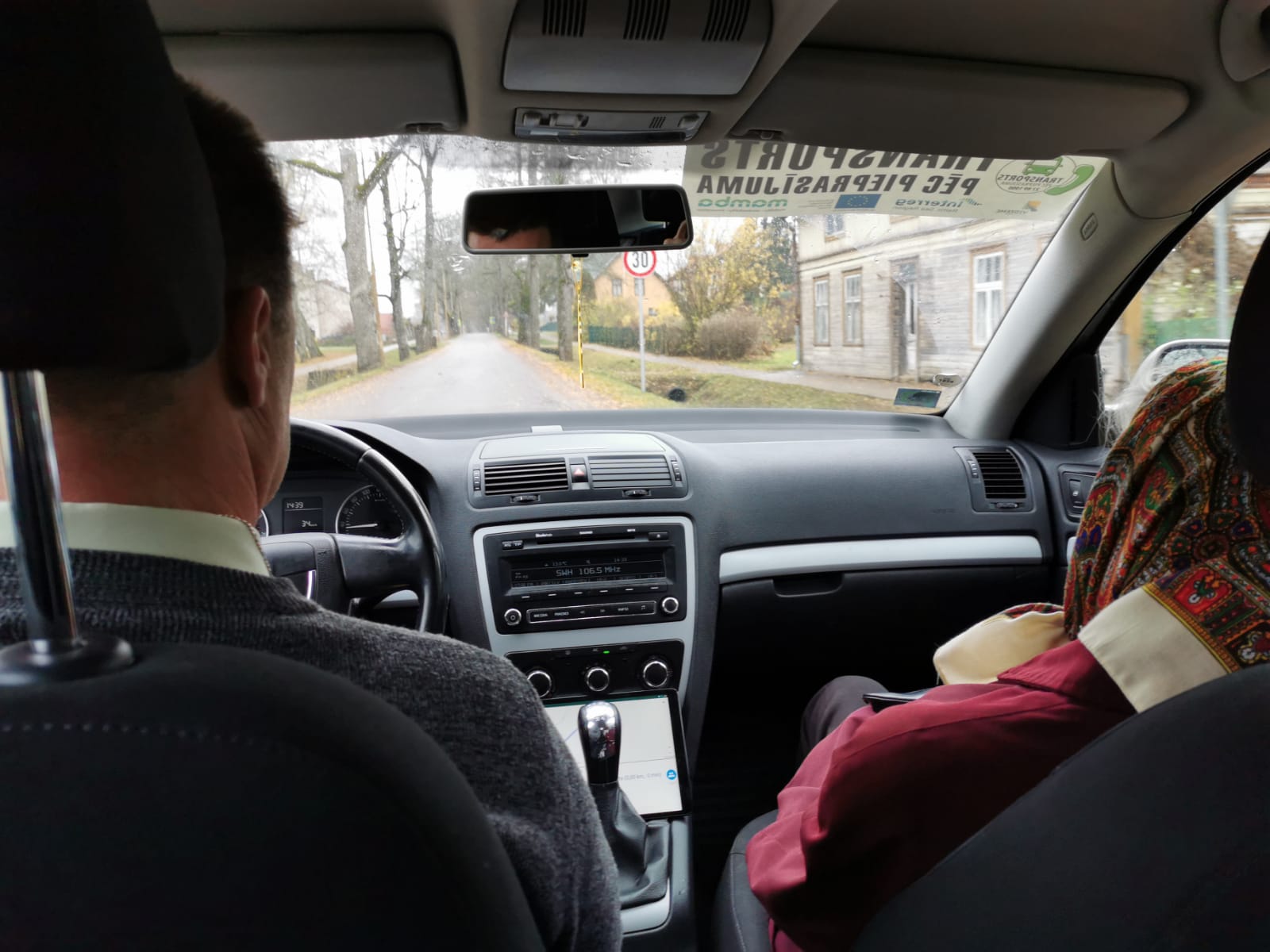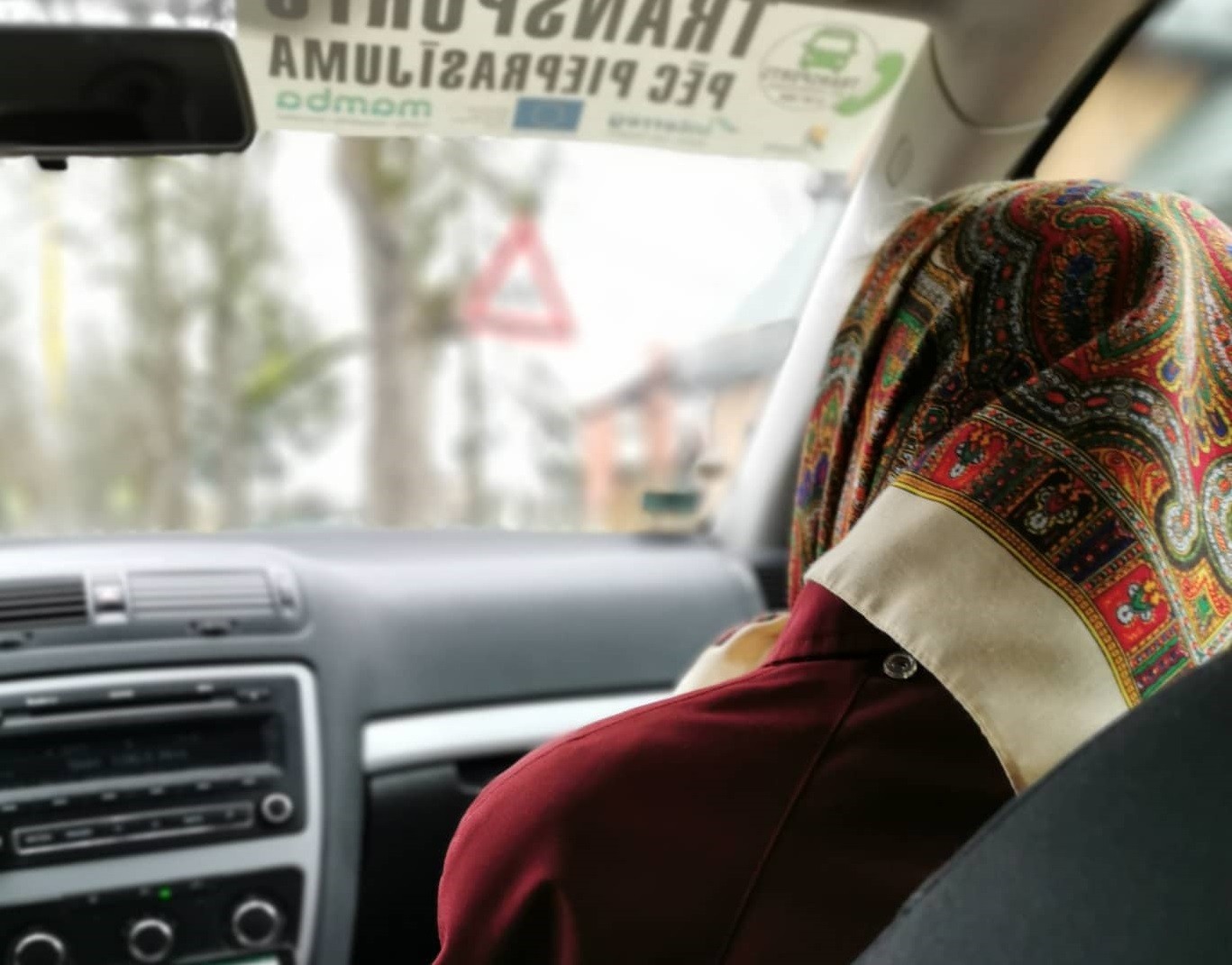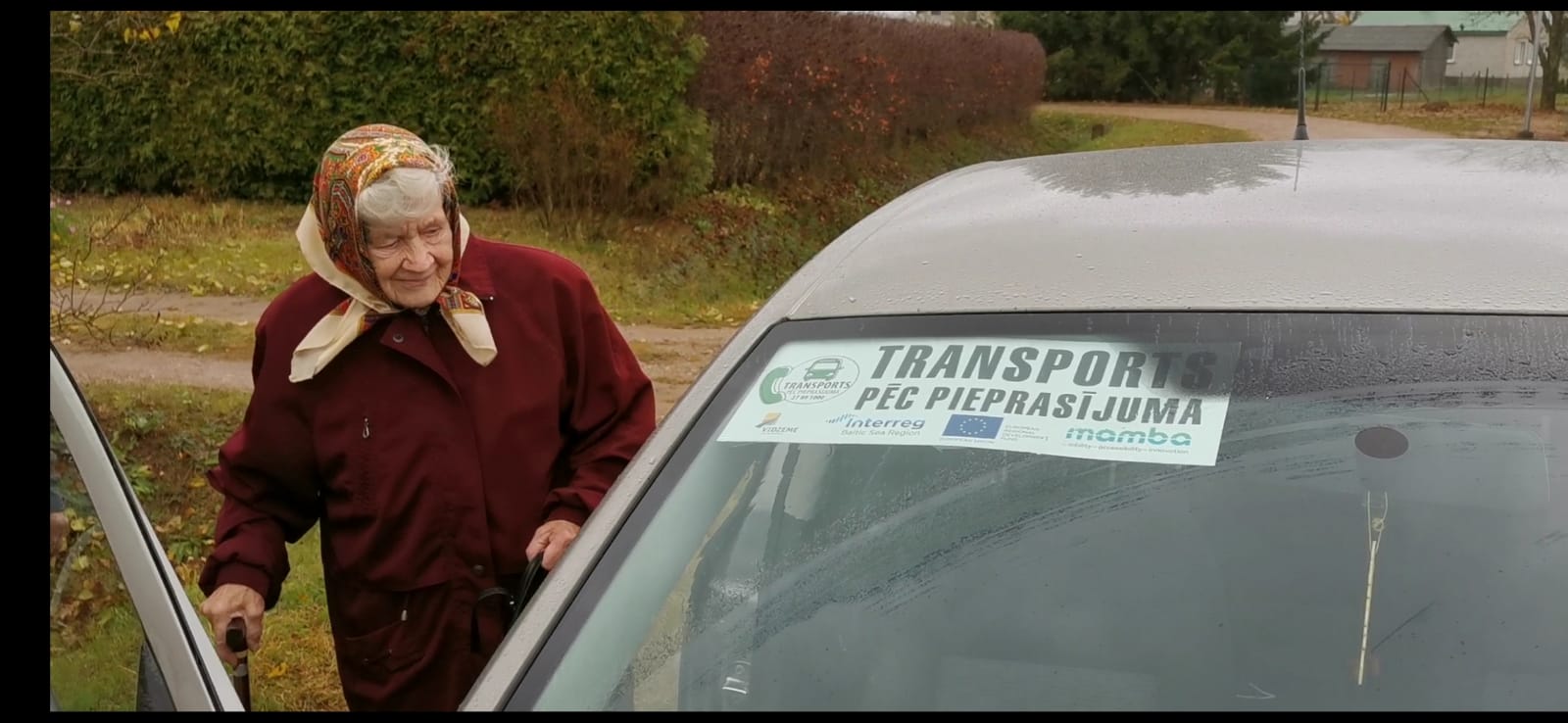
Transport on Demand in Mazsalaca and Aluksne counties
Transport on Demand (ToD)
Vidzeme Region, Latvia
The good practice takes place in Vidzeme Region in the northern part of Latvia.
Transport on Demand services (ToD) are piloted in two counties of the region – Mazsalaca County and Alūksne County. These are remote rural areas, where public transport service is poor or does not exist at all. People live in rural homesteads, often with a long distance to the nearest bus stop. Limited mobility has a significant impact on the quality of life of citizens, and integration into society is undermined.
Objectives
The pilot mainly follows social objectives. It is about providing the same rights to accessibility and mobility to people in rural areas as to those living in cities. Another aim of the pilot is to illustrate how “local mobility†can be integrated within the existing transport system put into practice, as this term is postulated in the Latvian legislation, but not yet specified.
Description of actions
The core of the pilot was Transport on Demand (ToD) service which was provided by two transport companies with small size vehicles. The ToD service was coordinated by the Mobility Centre (MC) established at Vidzeme Planning Region. Within the project a special IT software was developed for call management, route planning and storing data of provided services. The software was used not only by the MC dispatcher but also by the operator of the ToD service for route planning, locating trip origin and destination, and contacting passengers. The developed IT system can be used for mobility solutions organized by other Latvian regions and municipalities in future. The pilot was initiated within the MAMBA project from October 2019 to September 2020 (www.mambaproject.eu). After the end of the MAMBA project, Vidzeme Planning Region is not able to continue these activities and intends to initiate the state support program for mobility solutions in rural areas.
Implementation of actions
Close cooperation with the municipalities and the end-users in designing the ToD service and, as a result, user-friendly mobility services are seen as important success-factors of the pilot. Participatory approaches played an important role, e.g. community meetings with local residents and roundtables with local governments. The ToD service started in October 2019. Until 30 September 2020 2777 passengers used it. The majority of passengers were women (85%) and the average age of passengers is 60 years. A survey conducted among the passengers indicates that the service increases the feeling of security. If necessary, people are able to bring children to the kindergarten or school, go to the workplace, shop, pharmacy, state and municipal authorities, culture events, etc. The impact of the service is described by one of the passengers as follows: “Being in the countryside is becoming increasingly sad. Only the elderly people are left here and not everyone has a car. The Transport on Demand-service is obviously a necessary thing.â€
Web links to local sites for the demonstrator
